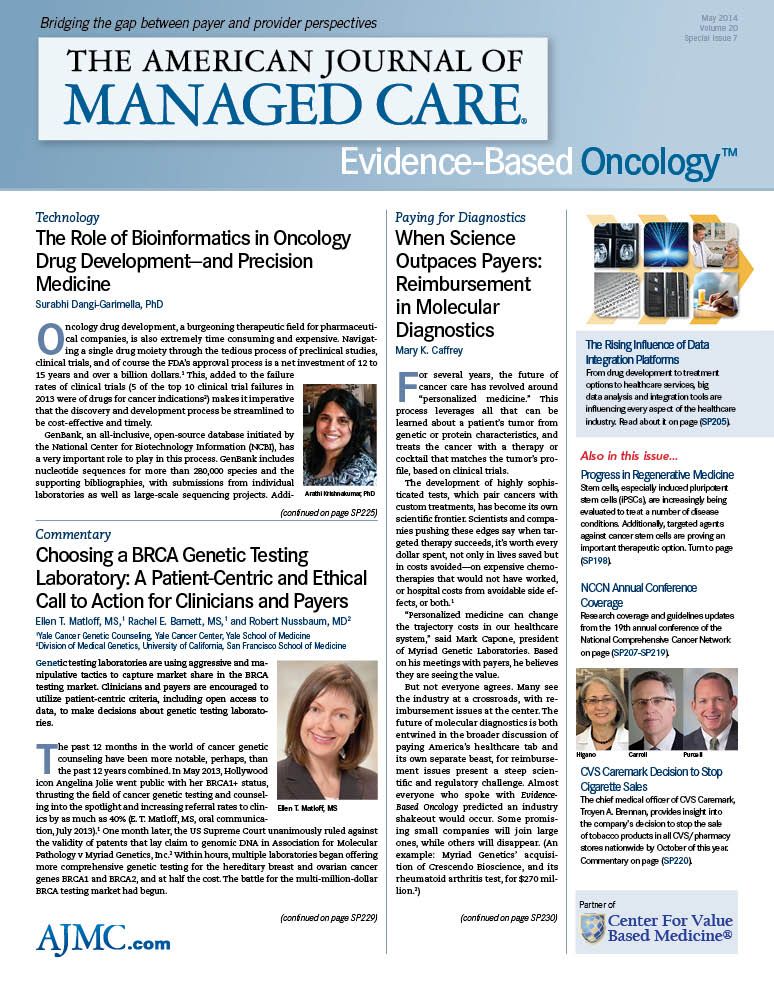- Center on Health Equity & Access
- Clinical
- Health Care Cost
- Health Care Delivery
- Insurance
- Policy
- Technology
- Value-Based Care
Fast Track for Prima Biomed's CVac Clinical Trial Development Program
Prima Biomed’s clinical program called CVac, to improve overall survival in relapsed patients with platinum sensitive epithelial ovarian cancer in their second cycle of remission, has been granted a Fast Track Designation by the FDA. The company, based in Australia, would like to bring this treatment option to patients in the United States soon. The Fast Track status for CVac follows an “Orphan Drug Designation” that was conferred in September 2010 by the FDA, soon after the European Medicine Agency granted CVac an “Orphan Medicinal Product Designation.”1
According to company CEO Matthew Lehman, “This designation is an important milestone for Prima. The FDA decision is in recognition of the serious nature of ovarian cancer and the clear unmet medical need to develop new treatments for relapsed platinumsensitive ovarian cancer in remission.
Building from our CAN-003 trial data, which indicated an improvement in progression-free survival in this patient population, we look forward to accelerating our recently commenced CAN-004-B trial to establish OS advantages of CVAc as soon as possible.”2
The CAN-003 trial, which evaluated patients in remission, found that CVac was well tolerated with no serious adverse events, while most of the nonserious adverse events were mild and transient. Additionally, there was no evident humoral response following CVac administration. Significantly improved progression-free survival (PFS) was observed only in patients administered CVac who were in second remission, compared to the controls; for patients in first remission, there was no observed difference in PFS between the CVac and control groups.
CVac is a biological formulation aimed to provide a personalized treatment option for ovarian cancer patients. Customized as per the patient, the technology involves isolating the patient’s own
immune precursor cells from the blood (leukapheresis) and then growing them out in the laboratory following separation of the dendritic cells. The cells are treated in vitro with a specific form of
the protein mucin 1. Following intradermal administration in the patient, CVac activates T cells to recognize and destroy tumor cells that express that particular form of mucin 1.3 References
1. Prima Biomed’s CVac granted Fast Track Designation by FDA [press release]. Sydney, Australia: Prima BioMed; May 9, 2014. http://www.primabiomed.com.au/media/
pdf/2014/09_05_14_announcement.pdf.
2. Clinical Development. Prima BioMed website. http://www.primabiomed.com.au/trial/clinical_developement.php. Accessed May 9, 2014.
3. CVac. Prima BioMed website. http://www.primabiomed.com.au/products/cvac.php. Accessed
May 9, 2014.

Empowering Children and Parents Through Technology: Opportunities, Challenges, and Future Directions
January 15th 2026Digital health platforms improve pediatric care by offering customized, interactive tools for children and parents. They enhance education, support, and engagement while tackling challenges related to access, usability, and privacy.
Read More
Exploring Racial, Ethnic Disparities in Cancer Care Prior Authorization Decisions
October 24th 2024On this episode of Managed Care Cast, we're talking with the author of a study published in the October 2024 issue of The American Journal of Managed Care® that explored prior authorization decisions in cancer care by race and ethnicity for commercially insured patients.
Listen
Subjective and Objective Impacts of Ambulatory AI Scribes
January 8th 2026Although the vast majority of physicians using an artificial intelligence (AI) scribe perceived a reduction in documentation time, those with the most actual time savings had higher relative baseline levels of documentation time.
Read More

